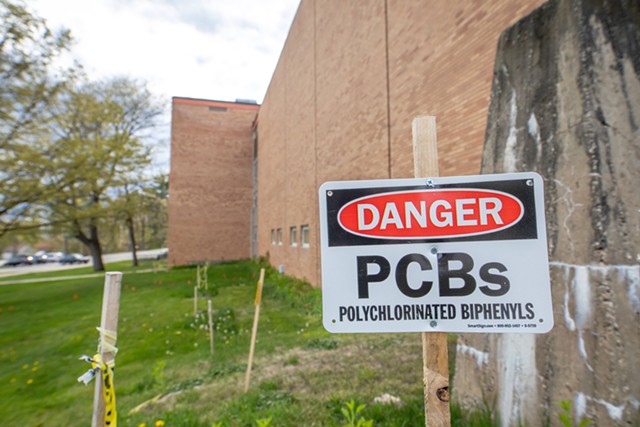
- File ©️ Seven Days
- A sign warning of PCBs outside Burlington High School in 2021
State health and education officials took to the stage of Green Mountain Union High School in Chester last week to publicly discuss tests of the building’s airborne PCBs. The upshot: 34 of 45 rooms showed results that need to be addressed. And eight of the nine rooms on the third floor had higher levels requiring immediate action — meaning they can’t be used until the issue is resolved.
Because only 10 days of school remained, state officials said it would be OK to use the rooms not on the third floor to complete the year. One attendee asked who was going to pay for the extensive, costly work the school district now faces to address the root problem.
“The answer to that is in flux right now,” said Patricia Coppolino, senior environmental program manager for the Department of Environmental Conservation.
 Her noncommittal response underscored the murkiness that surrounds the state’s ambitious initiative to test upwards of 300 older schools. After more than a year of testing and countless hours of legislative testimony, officials still don't seem to know the scope of the PCB problem in Vermont schools — or how much it will cost to fix.
Her noncommittal response underscored the murkiness that surrounds the state’s ambitious initiative to test upwards of 300 older schools. After more than a year of testing and countless hours of legislative testimony, officials still don't seem to know the scope of the PCB problem in Vermont schools — or how much it will cost to fix.
Only about a quarter of the 321 public and independent schools eligible have been tested so far, Coppolino and state toxicologist Sarah Owen said. Of those, around 30 percent had PCB levels that must be addressed.
 A proposed state budget contains $13.5 million to pay for PCB abatement at schools, as well as $16 million for cleaning up the former Burlington high school campus, which was contaminated with the chemicals. The budget language specifies that the state will reimburse schools for their costs. But last month, Gov. Phil Scott vetoed the budget, leaving its fate in question.
A proposed state budget contains $13.5 million to pay for PCB abatement at schools, as well as $16 million for cleaning up the former Burlington high school campus, which was contaminated with the chemicals. The budget language specifies that the state will reimburse schools for their costs. But last month, Gov. Phil Scott vetoed the budget, leaving its fate in question.
PCB remediation is expensive. At Cabot School , where elevated levels of airborne PCBs were discovered in the gymnasium last fall, Caledonia Central Supervisory Union superintendent Mark Tucker said it may cost $250,000 just to remove PCB-containing paint from the gym ceiling. It could be cheaper to replace the entire roof. And that’s just one school. 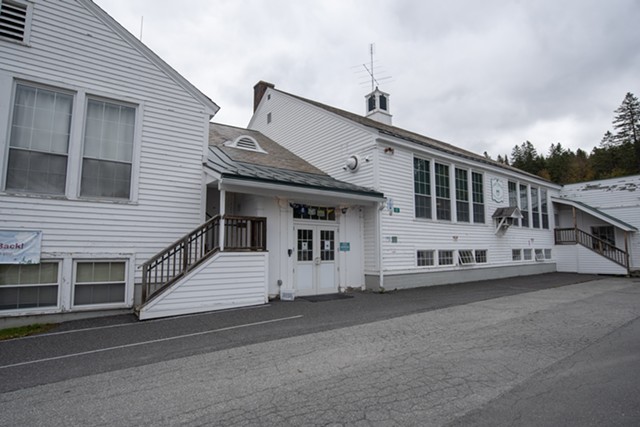 At North Country Union High School in Newport, 15 rooms measured above the school action level for PCBs this spring. Because only a portion of the school was sampled, it's likely that around 100 rooms are similarly contaminated, North Country Supervisory Union superintendent Elaine Collins said. The district has ordered carbon air filters, at a cost of around $100,000, as a temporary means to lower PCB concentrations. But more costly work to identify and remove PCB-laden materials lies ahead.
At North Country Union High School in Newport, 15 rooms measured above the school action level for PCBs this spring. Because only a portion of the school was sampled, it's likely that around 100 rooms are similarly contaminated, North Country Supervisory Union superintendent Elaine Collins said. The district has ordered carbon air filters, at a cost of around $100,000, as a temporary means to lower PCB concentrations. But more costly work to identify and remove PCB-laden materials lies ahead.
Meanwhile, Brighton Elementary School, also in Collins’ district, recently learned it has elevated levels of PCBs in several classrooms. As a result, the school ended its prekindergarten program in May, a month earlier than planned. And there's still uncertainty as to whether elementary students will be able to be in the building five days a week next school year, Collins said.
House Committee on Education Chair Peter Conlon (D-Cornwall) pushed unsuccessfully to pause the testing so that it could be better integrated with other school construction initiatives. Since the state is pushing for testing, he said, it should plan to fund the cleanup. 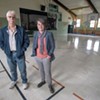
Sen. Dick McCormack (D-Windsor), who attended the Green Mountain Union High School forum, urged community members to be patient with the bureaucratic process.
“I’m going to have to ask people to bear with the discomfort of uncertainty,” McCormack said. “I can say we’re not going to drop the issue — I can say that with certainty.”
Rep. Heather Chase (D-Chester), who was also there, forecast the long road that her community — and others — will likely face. “I don’t know that there’s a quick fix,” Chase warned, “but let’s hang in there together and work through this.”
Because only 10 days of school remained, state officials said it would be OK to use the rooms not on the third floor to complete the year. One attendee asked who was going to pay for the extensive, costly work the school district now faces to address the root problem.
“The answer to that is in flux right now,” said Patricia Coppolino, senior environmental program manager for the Department of Environmental Conservation.
Related Chemical Crossroads: Lawmakers Consider Pausing Vermont's Ambitious, Costly and One-of-a-Kind Plan to Address PCBs in Schools

Chemical Crossroads: Lawmakers Consider Pausing Vermont's Ambitious, Costly and One-of-a-Kind Plan to Address PCBs in Schools
Education
Only about a quarter of the 321 public and independent schools eligible have been tested so far, Coppolino and state toxicologist Sarah Owen said. Of those, around 30 percent had PCB levels that must be addressed.

- Screenshot
- State officials at Green Mountain Union High School on June 7
PCB remediation is expensive. At Cabot School , where elevated levels of airborne PCBs were discovered in the gymnasium last fall, Caledonia Central Supervisory Union superintendent Mark Tucker said it may cost $250,000 just to remove PCB-containing paint from the gym ceiling. It could be cheaper to replace the entire roof. And that’s just one school.

- File: Jeb Wallace Brodeur ©️ Seven Days
- Cabot School
Meanwhile, Brighton Elementary School, also in Collins’ district, recently learned it has elevated levels of PCBs in several classrooms. As a result, the school ended its prekindergarten program in May, a month earlier than planned. And there's still uncertainty as to whether elementary students will be able to be in the building five days a week next school year, Collins said.
House Committee on Education Chair Peter Conlon (D-Cornwall) pushed unsuccessfully to pause the testing so that it could be better integrated with other school construction initiatives. Since the state is pushing for testing, he said, it should plan to fund the cleanup.
Related Vermont’s School PCB Testing Program Is Off to a Rocky Start

Vermont’s School PCB Testing Program Is Off to a Rocky Start
Education
Sen. Dick McCormack (D-Windsor), who attended the Green Mountain Union High School forum, urged community members to be patient with the bureaucratic process.
“I’m going to have to ask people to bear with the discomfort of uncertainty,” McCormack said. “I can say we’re not going to drop the issue — I can say that with certainty.”
Rep. Heather Chase (D-Chester), who was also there, forecast the long road that her community — and others — will likely face. “I don’t know that there’s a quick fix,” Chase warned, “but let’s hang in there together and work through this.”

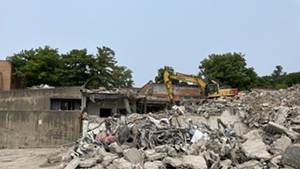
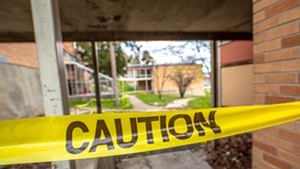
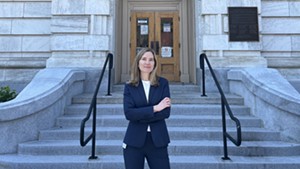










Comments
Comments are closed.
From 2014-2020, Seven Days allowed readers to comment on all stories posted on our website. While we've appreciated the suggestions and insights, right now Seven Days is prioritizing our core mission — producing high-quality, responsible local journalism — over moderating online debates between readers.
To criticize, correct or praise our reporting, please send us a letter to the editor or send us a tip. We’ll check it out and report the results.
Online comments may return when we have better tech tools for managing them. Thanks for reading.